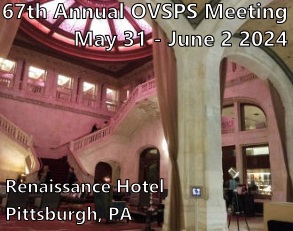<< Back to the abstract archive
An Evaluation of a Novel Craniofacial Skills Laboratory Curriculum: An Aid to Plastic Surgery Resident Milestone Achievement in Technical Skills and Instrument Knowledge
Nicole J Jarrett M.D., Sameer Shakir B.S, Anand R Kumar, M.D.
University of Pittsburgh
2014-03-15
Presenter: Nicole J Jarrett
Affidavit:
This is all the work of the authors, predominently the resident.
Director Name: Joseph Losee, MD
Author Category: Resident Plastic Surgery
Presentation Category: Clinical
Abstract Category: Craniomaxillofacial
PURPOSE: An educational model for training the unique technical skills for craniofacial surgery has not been defined or validated. The aims of this study are to present and validate a novel educational craniofacial skills laboratory and compare outcomes between traditional on-patient training and simulated laboratory training.
METHODS: A prospective study evaluated 1) instrument identification, 2) time/accuracy of burr hole placement, 3) time/accuracy of craniotomy, and 4) time/accuracy of 4-hole plating using Saw Bones Craniofacial Models before and after the skills laboratory. Minimal classroom training and extensive laboratory training was provided on fresh cadaver specimens but there was no direct training with the defined tasks. The R4 group had not yet rotated on the craniofacial service, whilst the R5 group had during the previous year.
RESULTS: The R4 (n=3) group mean time pre/post-task 1, 2, 3, 4 was 117/28, 6.33/4.33, 77.3/27, and 133/98.6 seconds. The R5 (n=6) group mean time pre/post-task 1, 2, 3, 4 was 62/44, 6/4, 32/22, and 108/82. R4 group post-training times were not significantly different than R5 pre-training times. Accuracy testing with instrument recognition demonstrated the greatest improvement for the entire cohort.
CONCLUSIONS: A single day craniofacial skills laboratory measurably improved residents performance on specific tasks by indirect training. R4 residents after the curriculum surpassed the pre-lab R5 residents who had already performed these tasks in the operating room. Craniofacial related skills tasks may be used to assess a trainee's readiness for performing them in the operating room and may aid in proper identification of milestone attainment.



